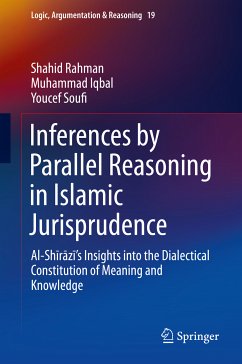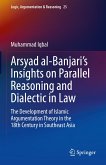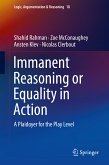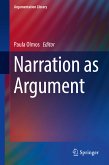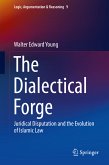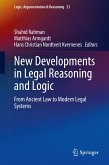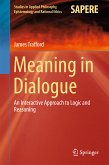After an overview of the emergence of qiyas and of the work of al-Shirazi penned by Soufi Youcef, the authors discuss al-Shirazi's classification of correlational inferences of the occasioning factor (qiyas al-'illa). The second part of the volume deliberates on the system of correlational inferences by indication and resemblance (qiyas al-dalala, qiyas al-shabah). The third part develops the main theoretical background of the authors' work, namely, the dialogical approach to Martin-Löf's Constructive Type Theory. The authors present this in a general form and independently of adaptations deployed in parts I and II. Part III also includes an appendix on the relevant notions of Constructive Type Theory, which has been extracted from an overview written by Ansten Klev. The book concludes with some brief remarks on contemporary approaches to analogy in Common and Civil Law and also to parallel reasoning in general.
Dieser Download kann aus rechtlichen Gründen nur mit Rechnungsadresse in A, B, BG, CY, CZ, D, DK, EW, E, FIN, F, GR, HR, H, IRL, I, LT, L, LR, M, NL, PL, P, R, S, SLO, SK ausgeliefert werden.

